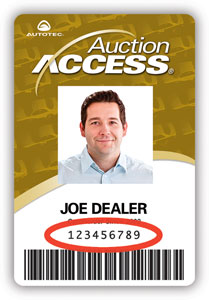Most often, a foreclosure auction is held at the Circuit Courthouse for the County/City where the property is located. However, many foreclosure auctions are held on the premises. Be sure to check the listing on our website, or the Legal Advertisement, for the location of the auction.
Your auctioneer CANNOT divulge this information. In fact, the Trustee usually does not disclose the bidding instructions to the auctioneer until just before the auction begins.
The auctioneer, noteholder and the Trustee generally DO NOT have access to the property.
You won’t be able to contact the bank/lender, but you may contact the trustee/attorney that represents the bank/lender. You can find their contact information at the top of the Legal Advertisement.
You will need to bring the deposit amount as stated in the Legal Advertisement in the form of a cashier’s or certified check. We WILL NOT accept a personal check. You can make the cashier’s check or certified check payable to Atlantic Auctions, or to yourself. If payable to yourself and you are the high bidder, you will endorse the check over to Atlantic Auctions.
You will register with the auctioneer at the auction site. The auctioneer will get your contact information and look at, or hold, your deposit check to make sure you can participate.
The Legal Advertisement contains the terms of sale and will state the Buyer’s responsibilities.
The purchaser will present the required deposit, sign the contract of sale, and assume responsibility for the property.
The Legal Advertisement contains the terms of sale. The advertisement will specify how many days are allowed after the sale is ratified by the Circuit Court. The ratification process can take 45-180 days, or more, depending on the jurisdiction.
If you are financing the property, you should speak with your bank/lender well before bidding to make sure you will have financing in place in the time allotted. Failure to obtain financing in the specified timeframe for settlement could result in you being in default and YOU COULD LOSE YOUR DEPOSIT. In addition, the property may be resold at your risk and expense.
It is the purchaser’s responsibility to obtain possession of the property. You may wish to contact the local Sheriff’s department.



